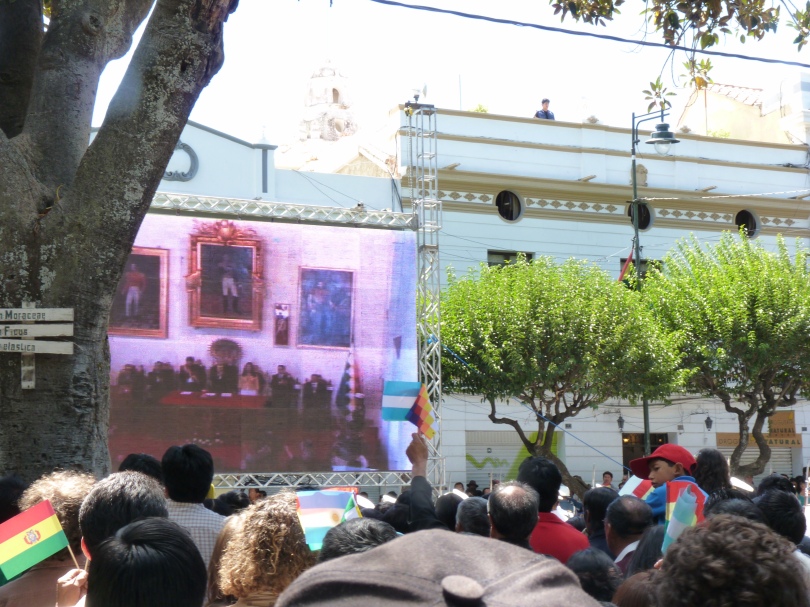I’m reposting this fieldwork newsletter account that I wrote in 2010 because it feels relevant to current conversations about narrating American history.
Imagine for a moment the following scenario:
There’s a formal diplomatic function between the United States and France, in which the visiting French president is honoring a hero of the Franco-American effort during the American Revolutionary War. Military and civil honors are being accorded to Thomas Jefferson, say, or the Marquis de Lafayette.* The French President is there, before a special session of the United States Congress. Picture the well of the House, the assembled guests, the audience of Americans watching on video screens on the streets outside the Capitol. The first to speak, on behalf of the United States Government is Joe Biden. He strides to the podium, welcomes the French President, and begins a speech. He remembers the revolutionary era as a period of liberation for the American continent, a key point in a still unfinished process. Then he says we must think of the revolutionary period as two distinct struggles for independence and self determination: the American Revolution we all know, extending through the War of 1812; and the struggles Native Americans fought against invasion during the same decades. He says we must remember as American heroes Tecumseh as well as Jefferson, Blackhawk as much as Lafayette. For good measure, he adds Nat Turner to the list. The Age of Liberation we celebrate as the birth of our nation, he argues, will only be fulfilled when Native peoples have self governance and Blacks have ended oppression and racism against them.
I’m sure I can imagine this scene. You can too; hopefully, you just have. But those words out of the mouth of our current President or Vice President probably seem impossible. At least, I’m confident I won’t hear them. And I’m confident that if I did hear them, I would break into tears with the unexpected justice of the situation.
I mention this scenario not just because it represents a good goal, or underscores the place of talking about history in righting historic wrongs. I mention it most of all because changing the national context, it is exactly what I witnessed on the 26th of March in Sucre. The figure in question was not Thomas Jefferson or Lafayette, but Juana Azurduy de Padilla, a mestiza military commander in the wars against the Spanish from 1809 to 1825. Born in the town of Chuquisaca (now named Sucre after her contemporary military and political leader), she fought for the independence of both Argentina and Bolivia in a war in which she saw four of her sons and her husband die. It was also a war during which she gave birth to a daughter. Azurduy is embraced by nationalists and pro-indigenous activists, as an Argentine and a Bolivian, as a woman and as a soldier.
The speech was given not by Joe Biden, of course, but by Bolivian Vice President Álvaro García Linera. Before becoming Vice President, he was a partisan of a guerrilla movement of the 1980s and 90s, a professor of sociology, and a moving force within a leftist theory collective in La Paz called Comuna.
It is one thing to sit in a graduate classroom and learn about the extended history of South America’s Age of Revolution, to learn how the indigenous revolts of the 1770s and 1780s presaged the independence wars of the early 19th century. It is a different and altogether remarkable thing to watch a country’s national leadership embrace that narrative as a way of understanding its past. One of the better aspects of fieldwork has been the opportunity to do both.
* Military commander and diplomat Lafayette was in fact given honorary American citizenship in 2002. I won’t ask you to imagine the above scenario with Dick Cheney playing the role of García Linera.

